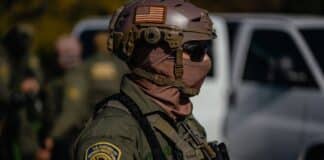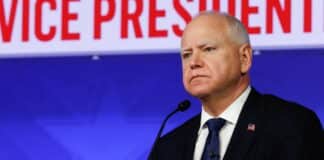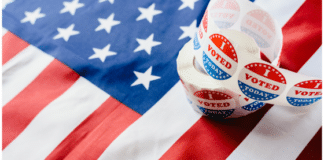Top leaders of Cuba’s communist regime, including figurehead Miguel Díaz-Canel, were hit with new U.S. visa restrictions Friday on the fourth anniversary of the July 11, 2021 anti-communist protests. The State Department sanctioned key officials for their roles in the violent repression of peaceful demonstrators, holding them accountable for grave human rights abuses.
Secretary of State Marco Rubio announced the sanctions, invoking Section 7031(c) to deny U.S. visas to Díaz-Canel, Armed Forces Chief Álvaro López Miera, and Interior Minister Lázaro Alberto Álvarez Casas, along with their families. Additional restrictions target prison and judicial officials complicit in the mass arrests, torture, and unjust trials of protestors. Over 65% of Cuba’s known political prisoners were jailed in connection with the 2021 protests.
The July 11 uprising marked one of the largest acts of resistance against Cuba’s regime in decades. Approximately 187,000 Cubans took to the streets demanding freedom and the end of communist rule. Díaz-Canel responded by urging regime loyalists to violently suppress the demonstrators, leading to door-to-door raids, disappearances, and public beatings.
Among the regime’s victims were children and individuals with disabilities, many of whom were swept up in mass trials lacking due process. One man was reportedly shot in front of his children during a government raid. The sanctions aim to hold officials accountable for these violations and to signal support for the Cuban people and political prisoners.
Rubio also announced expanded restrictions on U.S. business dealings with entities controlled by the Cuban military. These include several luxury hotels, such as the newly constructed 42-story Torre K, used to generate foreign revenue for the regime. The move targets the Cuban military’s economic stronghold while minimizing U.S. complicity in propping up the dictatorship.
Díaz-Canel and his wife Lis Cuesta downplayed the sanctions on social media, with Díaz-Canel deflecting blame by referencing Cuba’s alignment with Hamas and condemnation of Israel. Cuesta dismissed the visa bans by noting the regime leader had previously traveled to the U.S. for United Nations functions.
During a past visit in 2018, Díaz-Canel attended pro-Marxist events in Harlem and was seen alongside Venezuelan dictator Nicolás Maduro. Cuban state agents reportedly harassed American journalists during the trip, including those from outlets historically sympathetic to the regime. Despite Cuba’s long-standing persecution of Christians, Díaz-Canel used a Harlem church for a political rally—an action impossible under his government’s own laws.
Under Section 7031(c), a waiver exists allowing entry for U.N.-related obligations. It remains unclear whether Díaz-Canel will seek to exploit that loophole in future visits.





